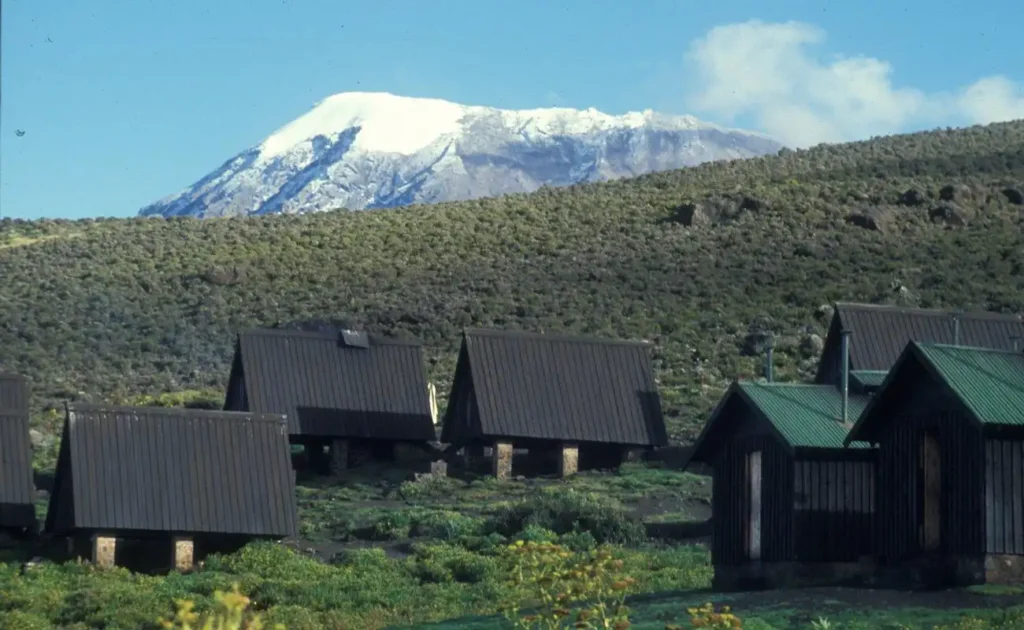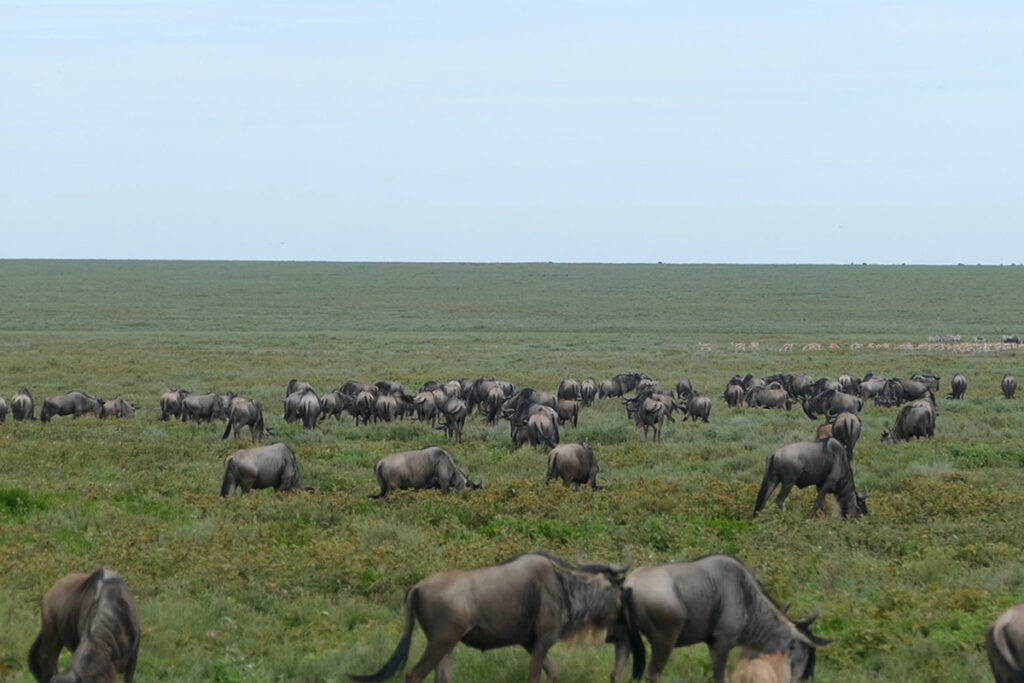It might be surprising to know that Zanzibar, with its enchanting beaches and historical allure, often demands a premium compared to mainland Tanzania. The influx of tourists seeking its sun-drenched shores contributes to higher prices in accommodation and dining. Despite this, many tourists are drawn to its unique culture and the promise of an exotic escape, accepting the elevated costs as part of the overall experience.
Zanzibar’s historical context as a trade hub has always made it slightly more expensive. In contrast, even bustling cities like Dar es Salaam maintain a lower cost of living. Recent surveys indicate that travelers can expect to spend around 30% more in Zanzibar than on the mainland. This price disparity primarily stems from the cost of transporting goods to the island and the burgeoning tourism industry influencing local economies.

Cost Comparison: Zanzibar vs. Mainland Tanzania
The allure of Zanzibar often comes with higher prices compared to the mainland. Accommodation in Zanzibar tends to be pricier, especially in popular beachside areas. Visitors can expect to pay more for beachfront views and luxury amenities. Many budget-friendly lodging options exist on the mainland, making it a preferred choice for cost-conscious travelers. Overall, the variance in accommodation prices is a significant factor in the cost difference.
Dining in Zanzibar can also be more expensive, particularly in tourist hotspots. The island offers a variety of dining experiences, from street food to upscale restaurants. Mainland Tanzania, with its street vendors and local eateries, often provides cheaper meals. This contrast in dining costs stems largely from the tourism-based demand in Zanzibar. Visitors can find cheaper options but luxury dining pushes up the overall cost.
Transportation costs present another layer of expense when comparing the two regions. While local transportation on the mainland is generally inexpensive, Zanzibar, being an island, sees increased costs due to limited options. Ferries and flights to and from Zanzibar can add to the travel budget. The increased demand for transportation within the tourist-heavy areas of Zanzibar boosts prices further. Mainland travel, by contrast, offers varied and cheaper public transport options.
A table can illustrate regional cost differences:
| Category | Zanzibar | Mainland Tanzania |
|---|---|---|
| Accommodation (per night) | $50 – $300 | $20 – $150 |
| Dining (meal for two) | $30 – $70 | $10 – $40 |
| Transport (average daily cost) | $20 – $50 | $5 – $20 |
Evaluating Accommodation and Dining Costs
Accommodation in Zanzibar varies greatly, from budget hostels to luxury resorts. Beachfront properties are especially popular and typically cost more. On the other hand, accommodation on the mainland, like in Dar es Salaam, tends to be cheaper with more budget-friendly options. Tourists looking to save can find deals in local guesthouses away from the tourist hotspots. This range allows travelers to choose according to their budget and preferences.
Dining in Zanzibar often leans towards luxury, with many restaurants offering international and gourmet cuisine. Popular tourist areas like Stone Town feature higher prices due to demand. Conversely, dining on the mainland can be significantly cheaper. Local eateries and street vendors offer delicious meals at a fraction of the cost. This provides a chance to enjoy authentic Tanzanian dishes, such as Ugali and Nyama Choma, without breaking the bank.
For a clearer picture, here’s a list of typical costs:
- Budget Accommodation: Zanzibar: $50/night, Mainland: $20/night
- Mid-Range Accommodation: Zanzibar: $100/night, Mainland: $50/night
- Luxury Accommodation: Zanzibar: $300/night, Mainland: $150/night
Dining also presents varying expenses based on location and type. In Zanzibar, a mid-range dinner for two can easily exceed $60. However, on the mainland, the same meal might be just $30. These differences highlight the impact of tourism on prices. Despite the cost variations, both regions offer unique culinary experiences for visitors seeking adventure.
Transportation Expenses in Zanzibar and the Mainland
Transportation expenses can differ significantly between Zanzibar and mainland Tanzania. In Zanzibar, you might notice that the cost of getting around is generally higher. This is due to limited transport options and the reliance on ferries and flights to travel to and from the island. On the mainland, public transport such as buses and minibusses, known as daladalas, are more available and affordable. This makes daily commuting cheaper for residents and tourists alike.
The cost of hiring a private vehicle or taxi in Zanzibar is also relatively high. Tourists often face higher rates, especially in popular areas or for transfers to and from the airport. In mainland cities like Dar es Salaam or Arusha, taxis and ride-sharing services like Uber or Bolt are more competitively priced. Using these services can help reduce overall travel costs. However, keep in mind that prices can fluctuate based on demand and location.
For a better understanding, here is a comparison of typical transportation costs:
| Transportation Type | Zanzibar | Mainland Tanzania |
|---|---|---|
| Taxi (per km) | $2 – $4 | $0.50 – $1 |
| Public Bus/Daladala (one way) | $1 | $0.20 – $0.50 |
| Airport Transfer | $30 – $50 | $10 – $20 |
Exploring on foot or by bicycle is a cost-effective alternative in both Zanzibar and the mainland. Many destinations offer bike rentals or walking tours. This not only saves money but also allows for a more immersive experience. Choosing the right transport method based on your needs can help manage expenses and enhance your travel experience.
Impact of Tourism on Local Economy and Prices
Tourism plays a significant role in shaping the local economy in places like Zanzibar. It brings in much-needed revenue and creates jobs, especially in sectors like hospitality and transport. The influx of tourists also leads to the development of infrastructure and amenities. However, this can also drive up prices for goods and services, making them less affordable for locals. This dual effect shows how tourism is both a boon and a challenge for local communities.
Tourism in Zanzibar has led to higher prices in key areas like accommodation and dining. Restaurants and hotels tend to price their offerings higher to capitalize on the spending power of tourists. This often results in an increase in the cost of living for local residents. On the mainland, while tourism also boosts the economy, the impact on prices is less pronounced. This is due to a more diverse economy that doesn’t rely as heavily on tourism.
A look at the economic impact includes:
- Increased job opportunities in tourism and related sectors
- Improved local infrastructure like roads, airports, and public spaces
- Higher prices in popular tourist destinations
- Potential for cultural exchange and learning
- Environmental concerns resulting from increased tourism activities
Local businesses benefit from increased sales thanks to tourism. Souvenir shops, tour guides, and craft markets are some examples. However, this influx of money can sometimes lead to a dependency on tourism. During low seasons or global events like pandemics, these areas could suffer economically. Diversifying the economy remains crucial to lessen these vulnerabilities.
Tourism also fosters cultural exchange, helping visitors understand Tanzanian traditions and way of life. This can lead to mutual respect and understanding between locals and tourists. However, an increased tourist presence can also lead to cultural dilution if not managed properly. Balancing these impacts is essential to maintaining Zanzibar’s unique identity. Tourism remains a double-edged sword, offering both challenges and opportunities to local economies.
Key Takeaways
- Tourism boosts local economy by creating jobs in hospitality and transport.
- Zanzibar experiences higher prices due to its reliance on tourism.
- Mainland Tanzania offers more diverse economic activities beyond tourism.
- Local businesses flourish with increased tourist spending and demand.
- Cultural exchange enriches both tourists and locals, promoting mutual understanding.
Conclusion
The economic impacts of tourism on Zanzibar and mainland Tanzania present both opportunities and challenges. While tourism drives growth and job creation, it also introduces issues like higher living costs. Striking a balance between economic benefits and maintaining affordability for locals is crucial. A diversified economy can help mitigate these challenges.
Understanding the dynamics between tourism and economic development is key for policy makers. By promoting sustainable practices, both regions can thrive without compromising their cultural identities. This balance will ensure long-term benefits, sustaining tourism while safeguarding local livelihoods. Careful planning and adaptation are essential for future growth.



